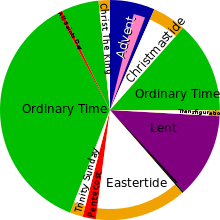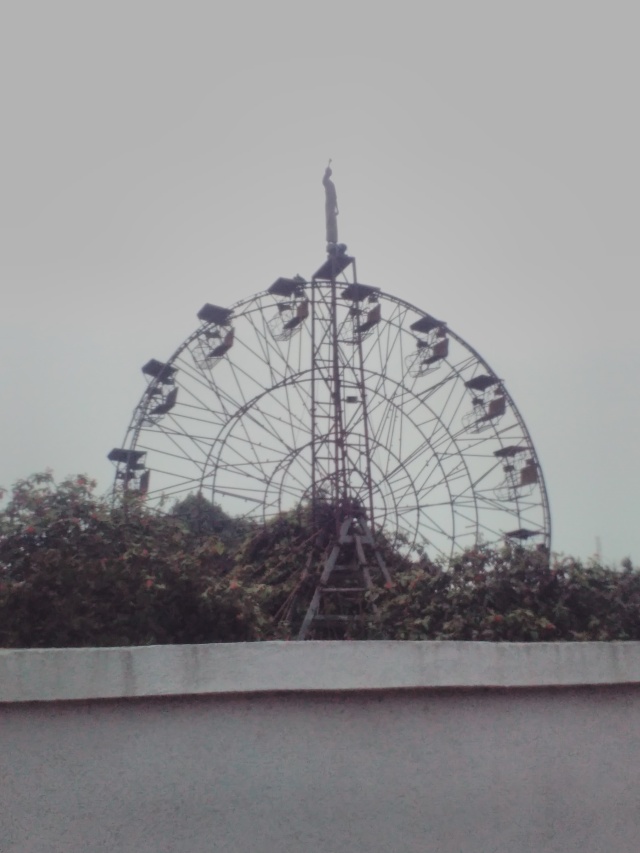Binge-watching is something very close to us all, or at least for me. Imagine having the same concept of devoting entire time to take a voyage through a particular piece of art. Only this time, the pieces are Bach’s cantatas.
But what is actually a cantata ? The word itself came from italian’s “cantare” which means “singing”. A cantata is a composition for voices / choir, accompanied by several instruments and made of several movements. Cantatas are not restricted to sacred liturgical music, although many notable cantatas are indeed part of or have been commissioned by the church.
The 2018 Bach Festival in Leipzig came with such notion, to perform 33 “best” cantatas of Bach, in just three days. That means, 10 concerts spread in 3 days with each concerts consisting 3-4 cantatas.
The festival came up with the idea of “Cantata – Ring”, refers to the cantatas in a church year, from Advent to the next Advent. The idea of such “Ring” came from another Leipzig composer who is famous for his Ring cycle : Richard Wagner and the Ring of the Nibelung. The notion of “Ring” is not far with Bach himself. He established such “cantata cycle”, refers to 60 cantatas he composed following liturgical events in his first year as a Kapellmeister (Music Director) of St. Thomas Church in Leipzig.

As a Kapellmeister, Bach had to prepare a cantata for each Sunday Service, based on the Lectionary (a list of the Bible passage for each Sunday and other Church festivals in a year) That means, Bach only had roughly 3 days to write the cantata, handed it to the copyist, and rehearsed it in also 3 days with the musician and choir for the Sunday service.
All Cantata Ring performers are choirs and orchestras that had recorded complete Bach Cantata, which are : Gaechinger Cantorey, Bach Collegium Japan, Monteverdi Choir + English Baroque Soloists, and Amsterdam Baroque Orchestra + Choir. Also, don’t forget the host : Thomanenchor and Gewandhausorchester Leipzig.
I was able to secure tickets to two performances, cantata ring 7 and 9. Cantata Ring 7 was performed by Bach Collegium Japan , while Cantata Ring 9 was performed by Ton Koopman and The Amsterdam Baroque Orchestra. Cantata Ring 7 featured Bach’s “inauguration cantata” which is the first cantata he performed as a Kapellmeister of St. Thomas church. The piece is BWV 75 “Die Ellenden sollen Essen” (The hungry shall eat), performed this year by the Bach Collegium Japan with the famous Masaaki Suzuki. Cantata Ring 6 was an actual open-air Sunday Service, held in the Markt, in front of the old Town Hall, performed by the Gaechinger Cantorey and Christoph Rademann, performing the actual cantata for the Sunday, BWV 76. Since each cantata is based on a particular day in church calendar, the actual lectionary passage was read by the pastor before each cantata to give the audience the context and background of each cantata.
Since I bought the second cheapest ticket, I got the seat on the left wing inside St. Thomas Church. Which means, no view to the performers at all. That’s better though, I can still take a little glimpse on my side. Those who have a ticket in the main nave had to sit facing the same direction like the performer, which means they have to turn their back if they want to see the performers.
In that case, I was forced to either read the text or read the music sheet ,which turns out being done by many people next to me. There were a lot of viewers who brought the actual music sheets of the cantata. Other viewers brought a copy of the cantata’s analysis. Masaaki Suzuki said in an interview with Fono Forum that “everyone brings the music sheets and they really pay attention to all the detail”. For the first time, I was really paying attention to the text, which is actually very deep in a theological sense. Each lines can be literally traced back to a particular bible verse (See my post on the Exhibition of BWV 60). Adding the fact that the acoustic worked very well and the realization that it is the exact same place where the cantata was performed for the first time 400 years ago. Except Cantata Ring 6, all Cantata Ring concerts were held in churches where Bach used to work, which are St. Thomas, St. Nicholas church, and the newly rebuilt University Church St. Pauli.
I would like to close this post with a video of very moving performance from the end of Cantata Ring 10. As the Cantata Ring 1 started with an advent piece, BWV 61, the end of Cantata Ring 10 was a piece intended for the Sunday just before Advent time, calling all to wait patiently for the Messiah that has been promised. In the last movement of BWV 140, Sir John Eliot Gardiner turned to the audience and everyone began to sing this very beautiful choral piece.












